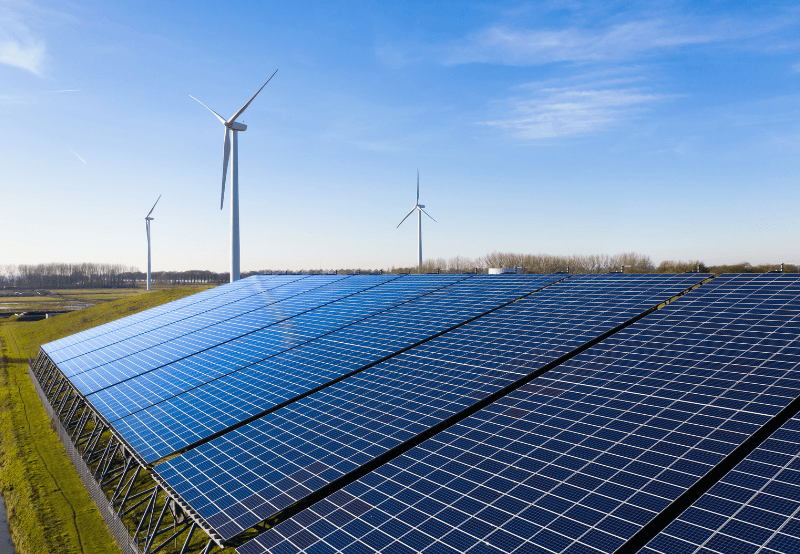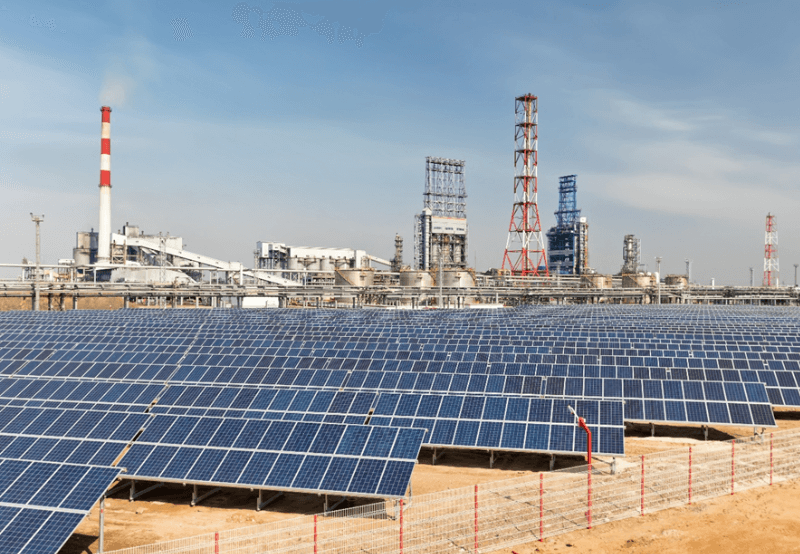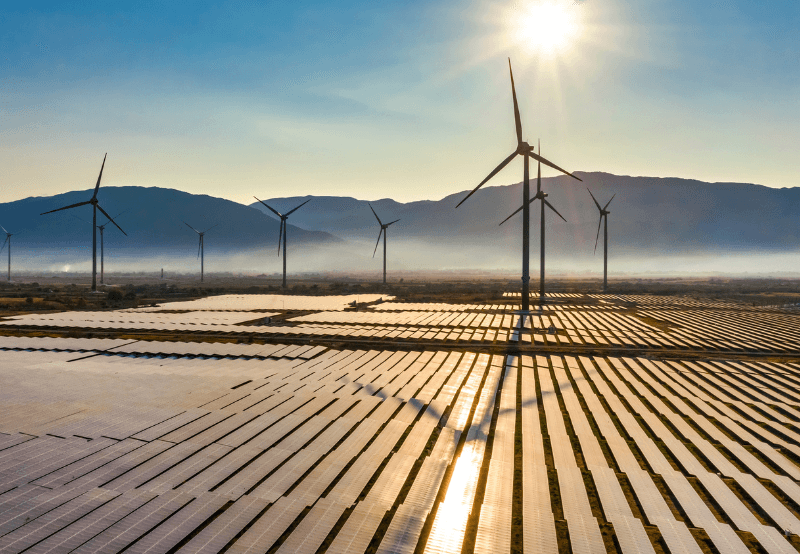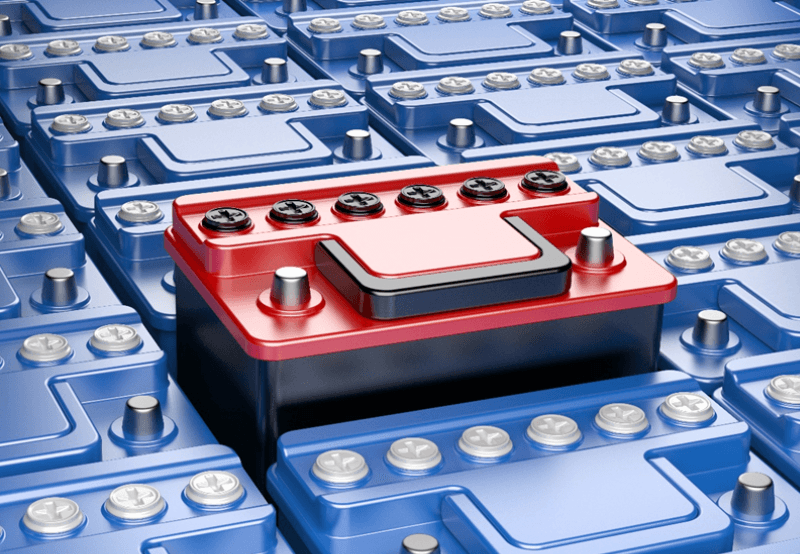Developers Fear Unfair State-Specific Levies will Make Solar More Expensive
Madhya Pradesh to impose ₹0.10 ($0.0012)/kWh fee on non-DISCOM consumers
November 3, 2022
Madhya Pradesh’s new levy on solar developers selling power to entities other than the state distribution companies (DISCOMs) has confirmed the industry’s fear that more states are formulating laws to squeeze solar projects through state-specific levies.
The state has announced a Harit Urja Vikas (green energy development) fee of ₹0.10 (~$0.0012)/kWh on electricity sold to non-DISCOM consumers. The fee will apply to all renewable energy projects with consumers outside Madhya Pradesh. Additionally, in the case of open access projects (captive/third-party), the levy will apply to the entire electricity generated by projects.
Madhya Pradesh’s levy goes a step further in scope than Rajasthan, which imposes a cess between ₹200,000 (~$2,417) and ₹500,000 (~$6,039) per MW annually on developers for supplying power to utilities other than DISCOMs in Rajasthan.
While the Rajasthan levy is effective on DISCOMs of other states, the green energy levy in Madhya Pradesh will also be borne by commercial and industrial (C&I) units located within the state and procuring solar power through open access.
 A developer said other states would also start looking at solar projects as an easy and attractive source of revenue. “The Madhya Pradesh fee is akin to the state shooting itself in the foot as its domestic C&I base will suffer due to more expensive solar power.”
A developer said other states would also start looking at solar projects as an easy and attractive source of revenue. “The Madhya Pradesh fee is akin to the state shooting itself in the foot as its domestic C&I base will suffer due to more expensive solar power.”
Another developer specializing in solar open-access projects said that the ₹0.10 (~$0.0012)/kWh levy will not make projects unviable but will surely eat into the profits. “Also, the question is not about how it will affect captive or third-party projects but about the fairness of imposing such fees. This goes against the growth and development of the renewables sector,” he said.
Over the past few years, C&I consumers across the country have moved towards renewable energy open access, especially solar, as it has provided meaningful savings in energy costs. According to Mercom India Research’s Mercom India Solar Open Access Market Report Q2 2022, Madhya Pradesh has an installed open access solar capacity of 399 MW.
By going green, C&I units have gained more credibility and attracted fresh business while being able to secure loans at reasonable rates. The additional fee in Madhya Pradesh has narrowed savings from renewable options.
Before the Madhya Pradesh government approved the Harit Urja fees, the Rajasthan Electricity Regulatory Commission had proposed that the state government enact a law mandating that inter-state solar projects provide 10% of the capacity to the state DISCOMs free of cost. Developers had sounded the alarm bells then, saying that other states would replicate it.
“If you look at the recent ISTS auction of SECI or any other organization, you will see a margin of one paisa sometimes determines the winners. The competition is aggressive, and such a fee is unfair,” said a senior executive of a solar project developer.
Another developer added that the fee would bring an additional burden on top of state transmission utility charges, cross subsidy surcharge, additional surcharge, and wheeling charges, among others.

“These are the charges we know we must pay and are completely willing to do so. However, if states decide to come up with random fees, this will set a bad precedent and impede the growth of renewables,” he added.
The suite of fees imposed by DISCOMs is adding pressure on developers by cutting into their profits and potentially increasing the cost of projects. States must ensure that the growth of renewables is not impeded if they aim to contribute meaningfully to India’s renewable installation goals.
The levies by individual states pose a genuine threat to the renewable ecosystem, but the central government has constitutional limitations in negating such moves. India’s federal structure allows the state governments complete or partial autonomy to make laws in many areas. Legally, the power sector comes under the ‘concurrent list,’ which means that both Center and states can legislate on it.
In the event of a dispute, the Center’s law is supposed to prevail in the Supreme Court. The Central government has traditionally avoided getting into such constitutional battles unless totally unavoidable.
Get the most relevant India solar and clean energy news.
RECENT POSTS
Nov 30, 2022
Nov 30, 2022
Mar 2, 2023
Mar 2, 2023
India added 2.5 GW of solar open access in the calendar year (CY) 2022, a year-over-year (YoY) increase of 92% from the 1.3 GW installed in CY 2021, according to the newly released 2022 Q4 & Annual Mercom India Solar Open ...
March 16, 2023
Markets & Policy
25% of Generation Capacity of Coal Plants Must be from Renewables: Ministry of PowerThe Ministry of Power (MoP) has proposed that any coal-based thermal generation station coming up after April 1, 2024, must either install or procure renewable energy equivalent to 25% of the thermal generation capacity. Stakehold...
November 9, 2022
Mercom Research Focus
India’s Solar Market Leaders for 1H 2022Mercom India has released its report, India Solar Market Leaderboard 1H 2022, unveiling solar market leaders in the first half (1H) of the calendar year (CY) 2022. The report covers market share and shipment rankings across the In...
November 9, 2022
Energy Storage
Webinar to Shed Light on How Battery Storage Enhance Solar Systems’ PerformanceBattery energy storage technologies globally are transforming how companies utilize, control, and dispatch electricity and facilitating a smoother transition to clean energy. The Indian market is also realizing how battery storage...
November 9, 2022
Trending News
November 30, 2022
November 30, 2022
March 2, 2023
March 2, 2023
November 28, 2022
Tender & Auctions
PTC India’s EoI to Procure 1 GW of Hybrid Power Receives Overwhelming Response
November 3, 2022
Magazine
Grid
GreenCell Raises $40 Million Funding from ADB to Develop Electric Buses
Energy Storage
Webinar to Shed Light on How Battery Storage Enhance Solar Systems’ Performance
November 7, 2022
Latest News
This is custom content that will be displayed at the video in case you want to give an overview, etc. Michael Ballard
November 30, 2022
India added 2.5 GW of solar open access in the calendar year (CY) 2022, a year-over-year (YoY) increase of 92% from the 1.3 GW installed in CY 2021, according to the newly released 2022 Q4 & Annual Mercom India Solar Open...
March 16, 2023
The Ministry of Power (MoP) has proposed that any coal-based thermal generation station coming up after April 1, 2024, must either install or procure renewable energy equivalent to 25% of the thermal generation capacity....
November 9, 2022
Some test content that can be displayed somewhere maybe if needed? Not sure Michael Ballard
November 30, 2022
March 2, 2023
OUR FLAGSHIP EVENT, MERCOM INDIA RENEWABLES SUMMIT, APRIL 2023 Mercom India Renewables Summit 2023 (formerly Mercom India Solar Summit) brings together developers, manufacturers, investors, innovators, and other key decision...
November 28, 2022
PTC India’s expression of interest (EoI) to procure 500 MW of hybrid renewable energy (wind and solar) (Tranche-I), with a greenshoe option for an additional 500 MW, has received a strong response, according to Mercom sources....
November 9, 2022
Ballard Power Systems, a fuel cell and clean energy solutions provider, recorded a net loss of $42.88 million in the third quarter (Q3) of 2022, a year-over-year (YoY) increase of 39%. The revenue for the quarter was $21.34...
November 9, 2022
Solid Power, Inc., a U.S.-based developer of all-solid-state battery cells for electric vehicles (EVs), reported a net loss of $12.4 million for the third quarter (Q3) 2022, a 46% increase from the $8.45 million loss during the...
November 9, 2022
Get the most relevant India solar and clean energy news.
POPULAR POSTS
Test Video Post2
Nov 30, 2022
14:46 Installs a Record 2.5 GW of Solar Open Access in 2022, Up 92% YoY
Mar 16, 2023
25% of Generation Capacity of Coal Plants Must be from Renewables: Ministry of Power
Nov 9, 2022
JANUARY 2023
Nov 30, 2022
DECEMBER 2022
Mar 2, 2023
NOVEMBER 2022
Mar 2, 2023
Mercom India Renewables Summit 2023
Nov 28, 2022





